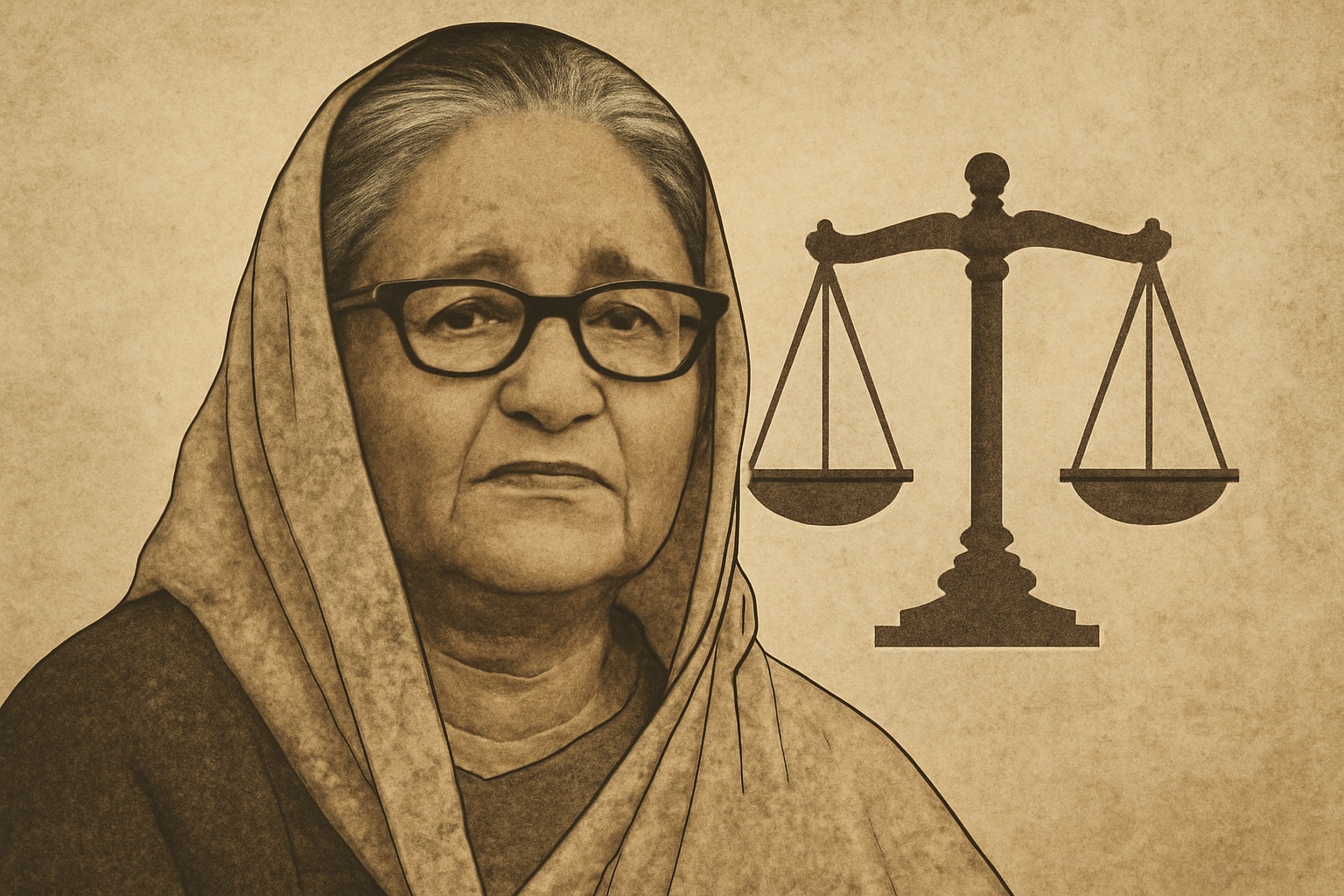It took just one verdict. A single ruling that planted the seeds of autocracy deep into the soil of Bangladesh’s fragile democracy.
Even today, the nation remembers with burning clarity the searing heat of 2010, when then Chief Justice ABM Khairul Haque declared the 13th amendment to the Constitution illegal. That judgment would mark the legal dawn of an era where authoritarianism would parade in the name of democracy for nearly a decade and a half.
Justice Khairul’s justification? That the caretaker government provision was an imposition by military rulers. But the reality told a different story. The caretaker system was, in fact, a hard-won fruit of the people’s uprising of 1990—a legacy paid for in the blood of Selim, Delwar, and Noor Hossain, and one that toppled the military regime of Ershad.
Khairul Haque’s verdict was not merely a distortion of history. It became a gift-wrapped sceptre of power for Sheikh Hasina, allowing her to stage not one, but three farcical elections under the guise of legitimacy. In one, there were no opponents at all—an “uncontested election” without even the pretence of a vote. Another was infamously dubbed the “midnight election,” where ballot boxes were filled before dawn. The last was nothing more than a puppet show—no real opposition, just “us and our uncles.”
When political motives creep into the judiciary’s verdicts, the damage goes far beyond courtrooms. It strikes at the spine of the state itself. And that fracture still runs deep.
For his services, Justice Khairul was handsomely rewarded—multiple state residences, luxury vehicles, lifelong security. Critics denounced these as grotesque examples of “policy inconsistency.” His post-retirement appointment as chairman of the Law Commission was nothing short of a secret pact between judge and government—one that shook the foundations of judicial impartiality.
Even worse, this former Chief Justice continued to issue political statements long after stepping down, eroding the dignity of the very office he once held. The seat of a judge is not just a bench—it is a symbol of the people’s trust in justice. That trust, Khairul Haque betrayed. Rather than safeguarding the rule of law, he dismantled it—stone by stone.
Sociologists argue that the state exercises its symbolic power primarily through education and judiciary. If the justice system loses its credibility, every pillar of the republic begins to rot from within.
And now, as the nation emerges from the darkest chapters of fascist rule—marked by disappearances, killings, corruption, and rampant human rights violations—it is worth remembering where it all began.
A single reckless or politically motivated verdict can set a nation back by generations. Justice Khairul’s judgment was just that: a judicial boulder dropped upon a nation, crafted by the judge’s own hand and thrust upon the people through the highest court.
Now, history must sit in judgment of the judge himself.
And surely, one day, the morning will break. We wait for that dawn.


